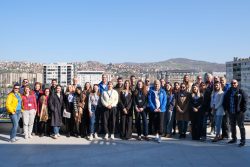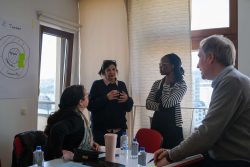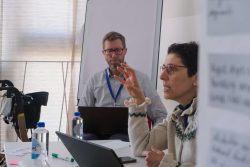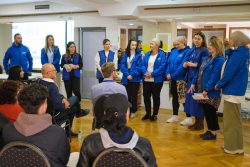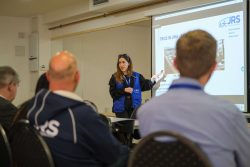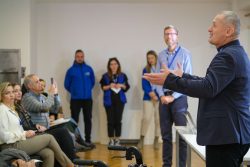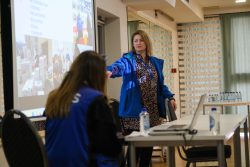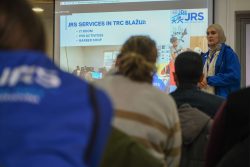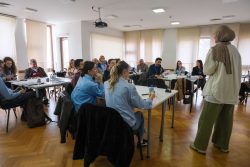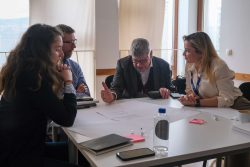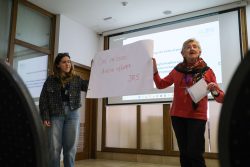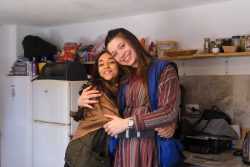JRS Regional meeting and Annual gathering in Sarajevo: Strengthening a shared vision in the context of diversity
19 May 2025
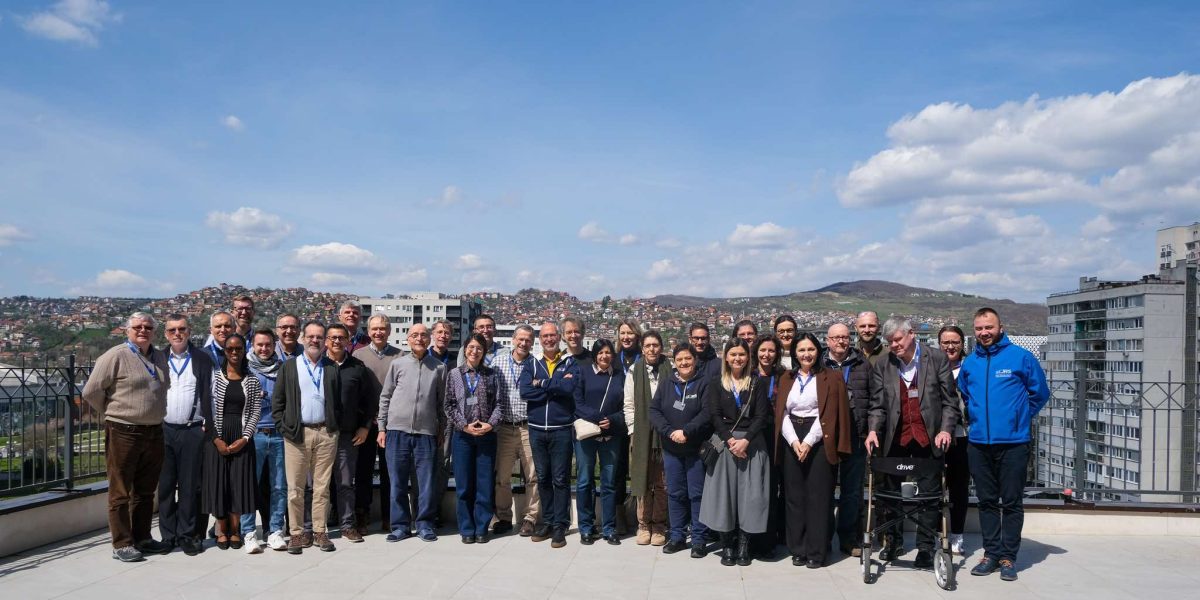
This month, Sarajevo hosted an important gathering that brought together regional and national representatives from JRS Europe. The meeting, organized in collaboration with JRS Bosnia and Herzegovina, served as a space for collective reflection, experience exchange, and alignment of strategic directions in the context of increasingly complex migration challenges in Europe.
The program began with an address by Fr. Dalibor Renić, who presented the broader context of the Jesuit mission in Europe, setting a thoughtful and reflective tone for the gathering. This was followed by a presentation by Fr. Stanko Perica on migration trends in the Balkans and Europe, which sparked a discussion on how local specificities can contribute to shaping a shared strategic response across the network.
During the meeting, participants had the opportunity to present the challenges they face in their daily work, as well as the innovative solutions and approaches they have developed in their respective contexts. Special attention was given to evaluating the results of the “One Proposal” initiative, especially in light of the events in Ukraine, and the possibilities for further strengthening coordinated responses within the network.
The final part of the meeting focused on collaborative work on the draft of a new strategic framework, which is expected to be implemented in 2026. Discussions covered the results of internal consultations and key topics such as mission, identity, development priorities, and strengthening organizational capacities.
Immediately following this session was the annual gathering, which further deepened the focus on local experiences and initiatives. At the beginning of the programme, Sarajevo’s Mufti Nedžad Grabus addressed the participants, emphasizing the importance of interfaith dialogue and spiritual support for people on the move. He highlighted the region’s rich religious diversity and the need for joint humanitarian efforts based on mutual understanding and respect.
A series of workshops addressed specific challenges faced by Bosnia and Herzegovina as a transit country, the potential for strengthening collaboration among religious communities, and building partnerships with state institutions. The active participation of representatives from different countries contributed to a dynamic exchange of ideas on how to more effectively address the needs of displaced communities.
During their stay, participants also visited key field locations, including the Temporary reception center Ušivak and the Reception center for unaccompanied asylum-seeking minors and vulnerable children, where they gained direct insight into the concrete forms of support provided on the ground.
The entire gathering concluded with group reflections, weaving together all the threads that ran through the week – from strategic thinking to interpersonal and spiritual closeness. The event once again reaffirmed the value of collective action, regardless of borders, different faiths, and professional fields, in service to forcibly displaced people who need accompaniment and support.
